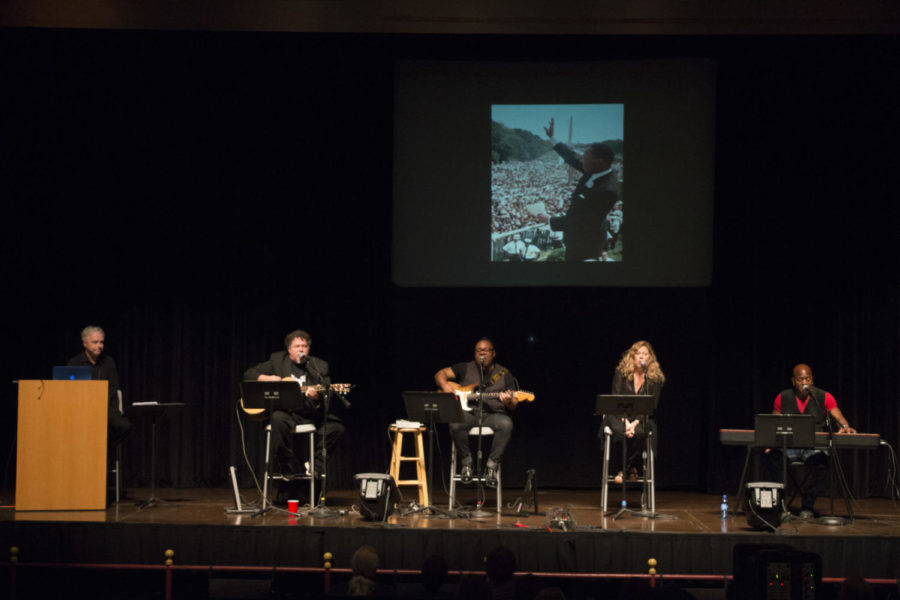- Ames247
- App Content
- App Content / Lifestyle
- App Content / News
- Limelight
- News
- News / Academics
- News / Politics And Administration
Freedom Sings tells history of free speech through music
April 19, 2017
Freedom Sings visited Ames on Wednesday as part of First Amendment Day to share some of the history of the first amendment and free speech through music.
The group, which is part of the First Amendment Center, hopes to “share the story of free speech with others,” said Ken Paulson, writer of the show and president of the First Amendment Center.
For Paulson, free speech is essential in the United States, and Freedom Sings attempts to show others why that is.
“In America, our revolution began with free speech and freedom of ideas,” Paulson said.
The musical group that performed included four musicians: Bill Lloyd, a Grammy-nominated singer/songwriter; Jonell Mosser, a renowned vocalist; Joseph Wooten, keyboardist for the Steve Miller Band, which was recently inducted into the Rock and Roll Hall of Fame; and Dez Dickerson, former guitarist for Prince and the Revolution.
Paulson acted as the narrator for the show, which moved through many moments of revolution in American history, such as the civil rights movement, women’s rights and anti-war protesting.
The Freedom Sings band performed a number of songs that highlighted how music played a large role in these changing times, including James Brown’s “Say It Loud — I’m Black and I’m Proud.”
Paulson also touched on censorship in popular music.
“When you put messages in music, people will inevitably disagree, hence censorship,” Paulson said.
Music censorship was discussed for reasons ranging from sex to drugs, and many examples were shown of the government censoring songs that were innocent.
Paulson described a song called “Louie, Louie”, in which the words were almost unintelligible, leading many kids in the 1960s to make up their own rude lyrics. The song was actually about a bartender missing his girl and contained no foul language.
Throughout the lecture, Paulson showed how music has often been integrated with history and with whichever issues were most prominent in the United States at the time.
“Thanks to the freedoms of the first amendment, (America) has come a long way in our journey to now,” Paulson said.
By showing the history of free speech in America through music, Freedom Sings provided new lenses for people to view it.
“I listened to a lot of these songs growing up, but I hadn’t realized the true value of them until tonight,” Sara Howard, an audience member, said. “I see our generation being a lot bolder and straight up in our music.”
First Amendment Day is meant to highlight what first amendment freedoms give us as Americans, something Freedom Sings also tries to convey.
“America is a truly special nation, and our freedom has made the difference,” Paulson said.







